Exploring the Must-See Art at the Louvre in 2 Hours: A Visitor’s Guide if You Are Short on Time
While the Louvre boasts an extensive collection of over 38,000 artworks in over 650,000 square feet of space and spanning thousands of years, it’s impossible to see everything in just one visit. Planning a visit to the Louvre can feel overwhelming, especially if you’re tight on time. We know you don’t want to miss anything, so fear not! I’ve curated this list of the top ten must-see treasures to help you make the most of your time at the museum. If you are tight on time and move quickly, you can hit all of these masterpieces within two hours. From iconic masterpieces to lesser-known gems, these highlights offer a glimpse into the rich tapestry of art and history that awaits within the Louvre’s walls.
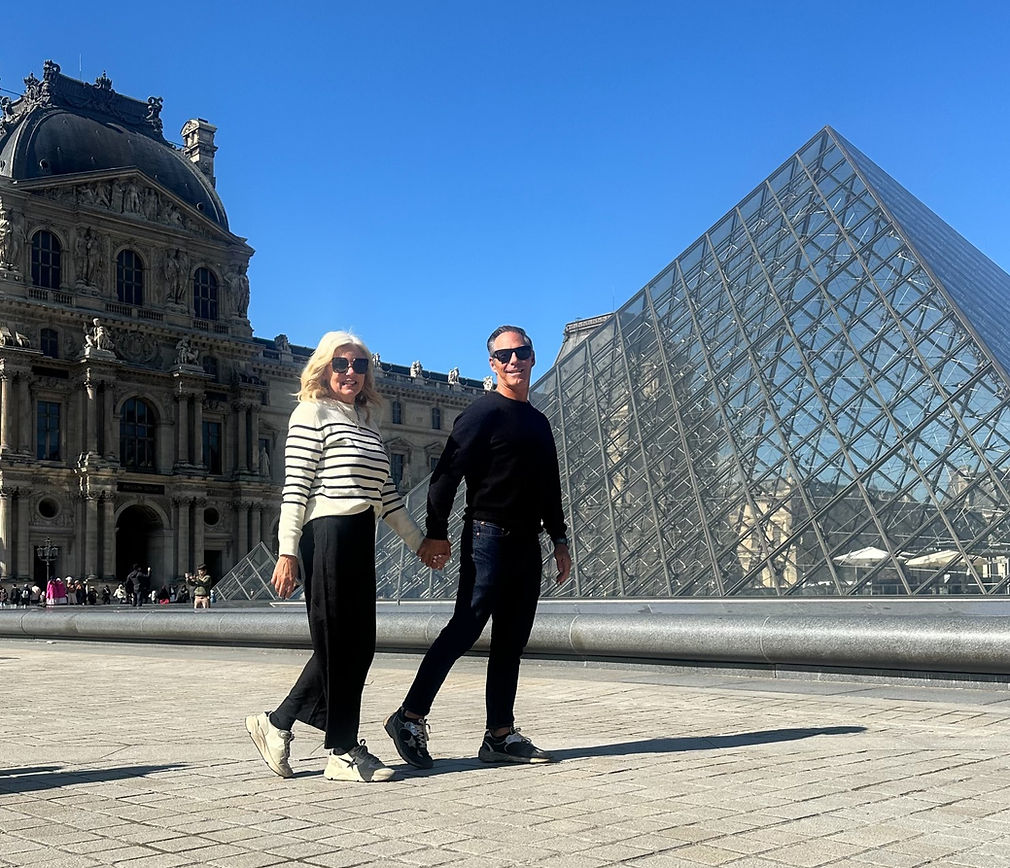
Before embarking on your Louvre adventure, I highly recommend booking your tickets in advance. The Louvre is one of the most popular attractions in Paris, and long lines are common, especially during peak tourist seasons and it can sell out. By purchasing your tickets ahead of time, you can skip the queues and maximize your time exploring the museum’s treasures. Click here to purchase timed entrance ticket.
Additionally, guided tours offer valuable insights and context that enhance your appreciation of the artworks. Whether you opt for a self-guided visit or a guided tour, planning ahead ensures a smoother and more enjoyable experience at the Louvre. Click here for a 2 hour guided tour that will show you all of the must-see art at the Louvre.
As for getting to the Louvre, navigating Paris’s public transportation system is a breeze. The museum is conveniently located in the heart of the city, making it easily accessible by metro, bus, or on foot. If you’re taking the metro, hop on Line 1 and exit at the Palais Royal–Musée du Louvre station, which deposits you right at the museum’s doorstep. Alternatively, many buses serving the area. For those who prefer to stroll, the Louvre is within walking distance from several landmarks, including the Seine River, Notre-Dame Cathedral, and the Tuileries Garden.
1. The Mona Lisa
Location: Denon Wing, Room 711
No visit to the Louvre would be complete without paying homage to the enigmatic smile of the Mona Lisa. Nestled within its own dedicated gallery, Leonardo da Vinci’s masterpiece captivates visitors with her mysterious gaze and timeless allure. There will be a crowd, but take your time to soak in the details of this iconic portrait and ponder the secrets that lie behind that enigmatic smile. Don’t forget to snap your own selfie with Mona Lisa.

2. The Winged Victory of Samothrace
Location: Daru Staircase, Daru Room
Perched atop a grand staircase, this majestic sculpture of Nike, the Greek goddess of victory, embodies the spirit of triumph and excellence. Marvel at her outstretched wings and billowing drapery as she commands the attention of all who behold her. It’s no wonder she’s considered one of the Louvre’s most beloved treasures. Be sure to catch the view from her left side.
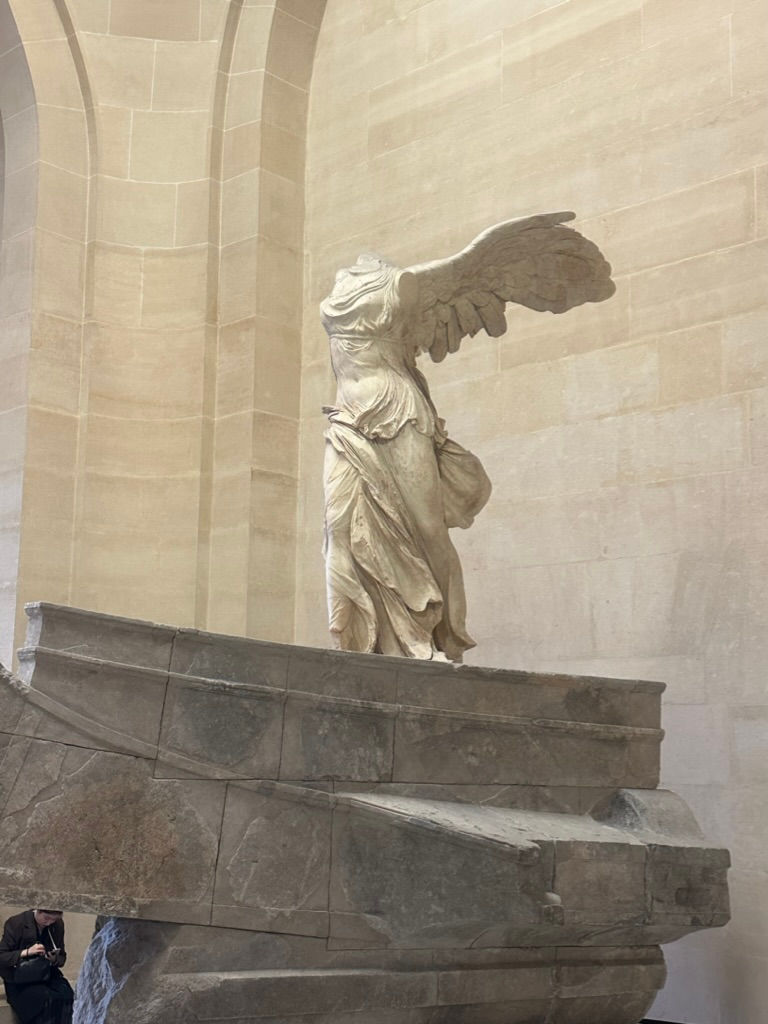
3. The Venus de Milo
Location: Sully Wing, Room 346
Step back in time and behold the timeless beauty of the Venus de Milo. Carved from marble in ancient Greece, this iconic sculpture of the goddess of love and beauty exudes elegance and grace. Despite her missing arms, the Venus de Milo continues to captivate audiences with her serene expression and classical poise. Take a moment to admire her delicate features and contemplate the enduring power of beauty throughout the ages.
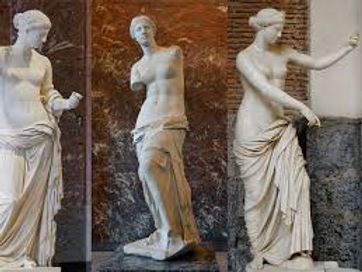
4. The Raft of the Medusa
Location: Denon Wing, Room 700
Prepare to be moved by Théodore Géricault’s powerful masterpiece, The Raft of the Medusa. Depicting the harrowing true story of a shipwreck off the coast of Senegal, this monumental painting captures the raw emotions of survival, despair, and hope. Stand before its towering canvas and immerse yourself in the drama and intensity of this Romantic masterpiece—a testament to the resilience of the human spirit in the face of adversity.
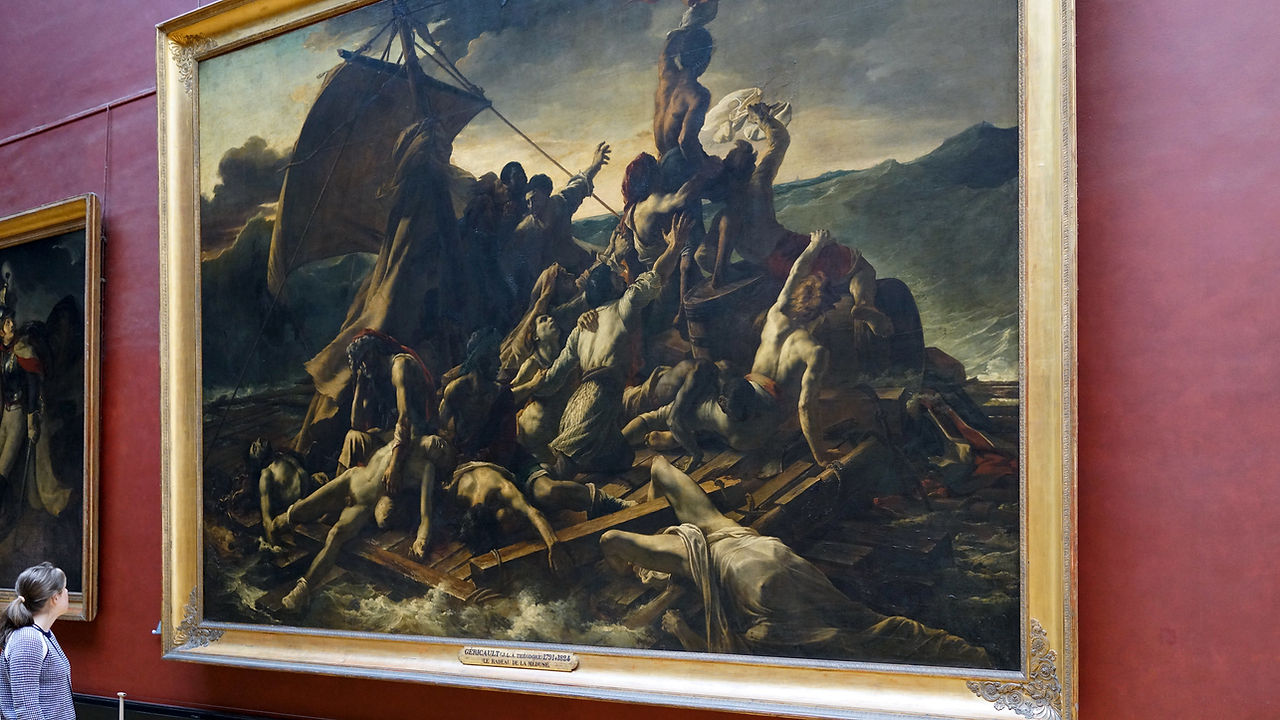
5. The Great Sphinx of Tanis
Location: Egyptian Antiquities, Room 338
Transport yourself to the sands of ancient Egypt with a visit to the Great Sphinx of Tanis. Dating back over 2,500 years, this imposing sculpture of a mythical creature with the body of a lion and the head of a human remains one of the Louvre’s most iconic artifacts. Marvel at its weathered visage and ponder the mysteries of ancient civilizations as you trace the footsteps of pharaohs and gods through the Egyptian Antiquities rooms.
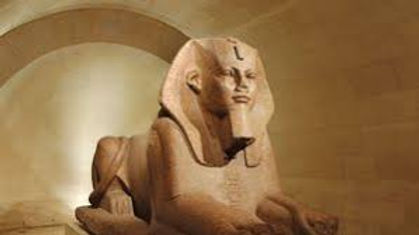
6. The Wedding at Cana
Location: Italian Paintings, Room 711
Experience the splendor of Veronese’s masterpiece, The Wedding at Cana, which depicts the biblical miracle of Jesus turning water into wine. With its lavish banquet scene and richly detailed composition, this monumental painting transports viewers to a world of abundance and celebration. It’s located in the same room as the Mona Lisa.
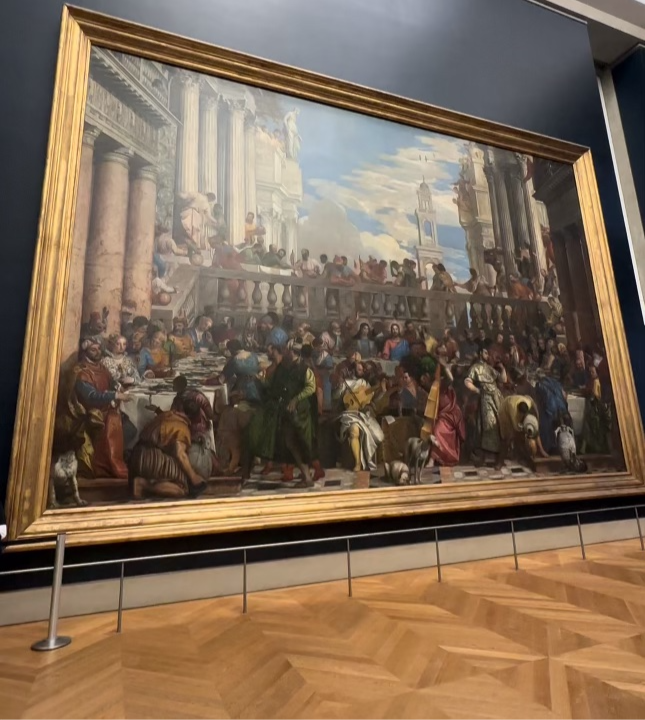
7. Liberty Leading the People
Location: French Paintings, Room 700
Stand in awe of Eugène Delacroix’s stirring depiction of Liberty Leading the People. Many people consider this one of the most important works in the Louvre. It reminds you of the courage and resilience of those who fought for freedom during the French Revolution.
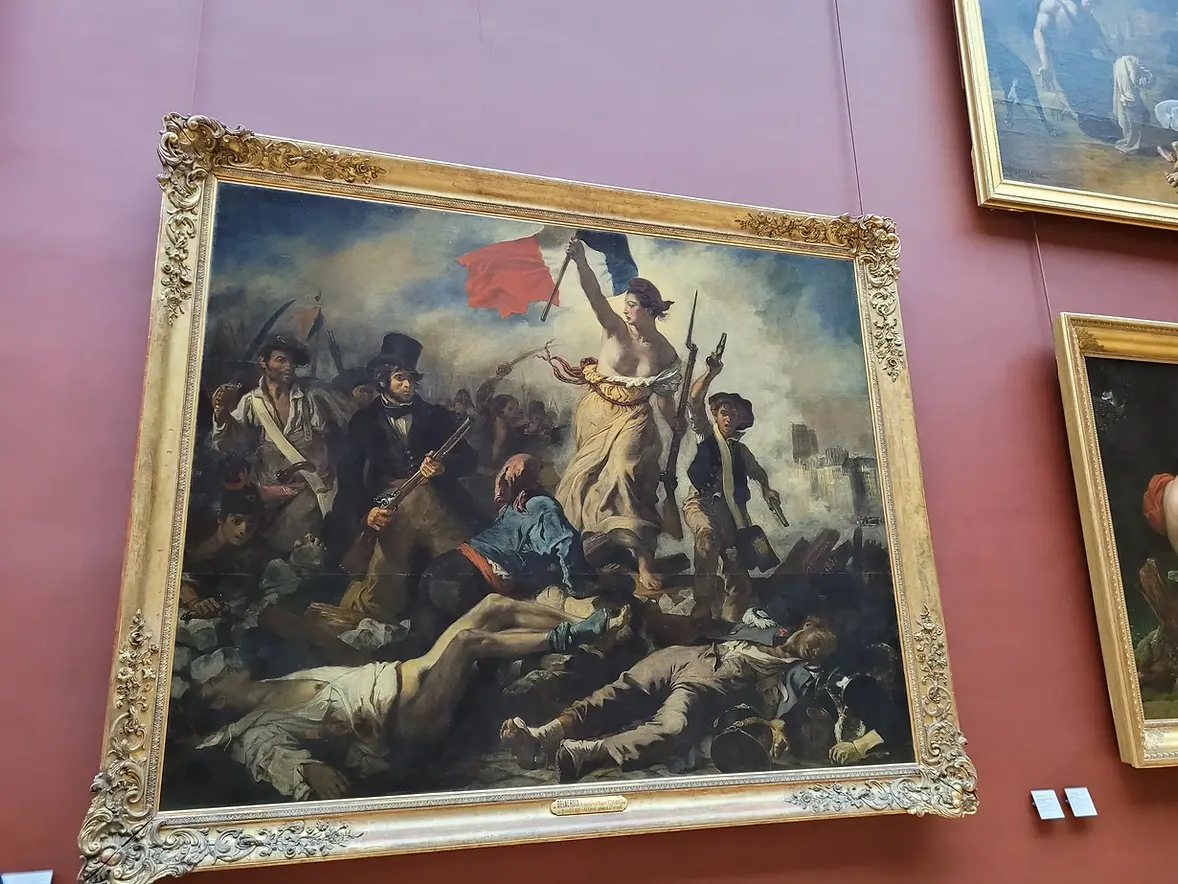
8. The Coronation of Napoleon
Location: French Paintings, Room 700
You can witness the grandeur of Jacques-Louis David’s monumental painting, The Coronation of Napoleon at the Louvre. Immortalizing the crowning of Emperor Napoleon I and Empress Joséphine, this opulent masterpiece offers a glimpse into the pageantry of Napoleonic France.
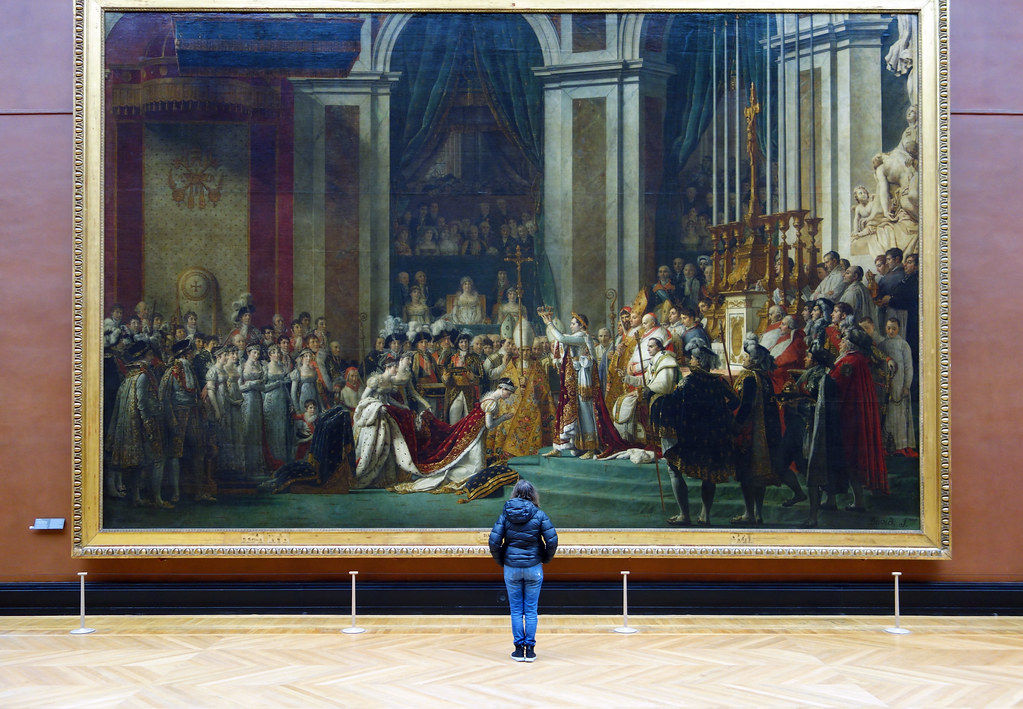
9. The Code of Hammurabi
Location: Near Eastern Antiquities, Room 227
Delve into the ancient world with a glimpse of the Code of Hammurabi. One of the oldest deciphered writings of significant length in the world, this ancient law code offers insights into the societal norms and values of its time. The Code of Hammurabi is a Babylonian legal text from about 1750 BC.
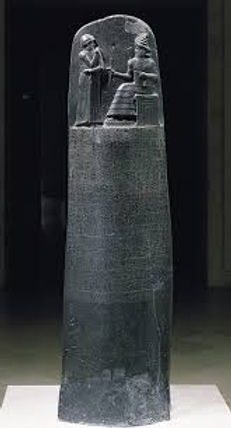
10. The Louvre Pyramid
Location: Courtyard outside the main entrance
Marvel at the architectural masterpiece that is the Louvre Pyramid. Designed by architect I. M. Pei, this iconic glass structure serves as the museum’s main entrance, welcoming visitors from around the globe to embark on their own artistic odyssey.
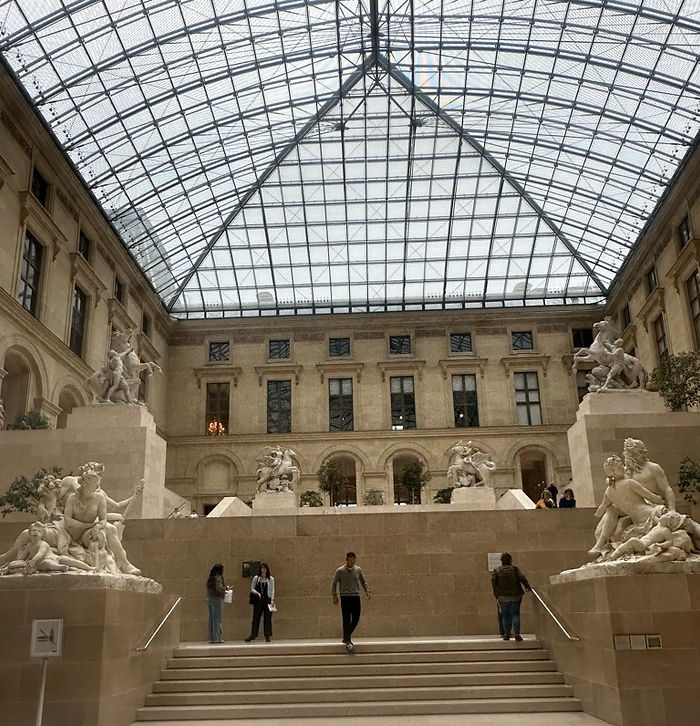
Travel isn’t just about places—it’s about people, experiences, and making memories. Hi! We are Shayne and Shelly Peterson. As empty nesters, we’ve found new ways to connect with the world (and each other) through travel. Follow our journey at JetSetPetersons.comand let’s explore together!
At Jet Set Petersons, we occasionally collaborate with brands, companies, and tourism boards to bring you content that aligns with our love for travel. Some of the posts on this website may include sponsored content, affiliate links, or gifted experiences.
We only partner with brands that we genuinely love and believe will bring value to our readers. While we may receive compensation in the form of payment, free stays, or complimentary products, all opinions expressed are our own. Honesty and transparency are at the core of what we do, and we would never recommend anything we wouldn’t personally use or enjoy.






